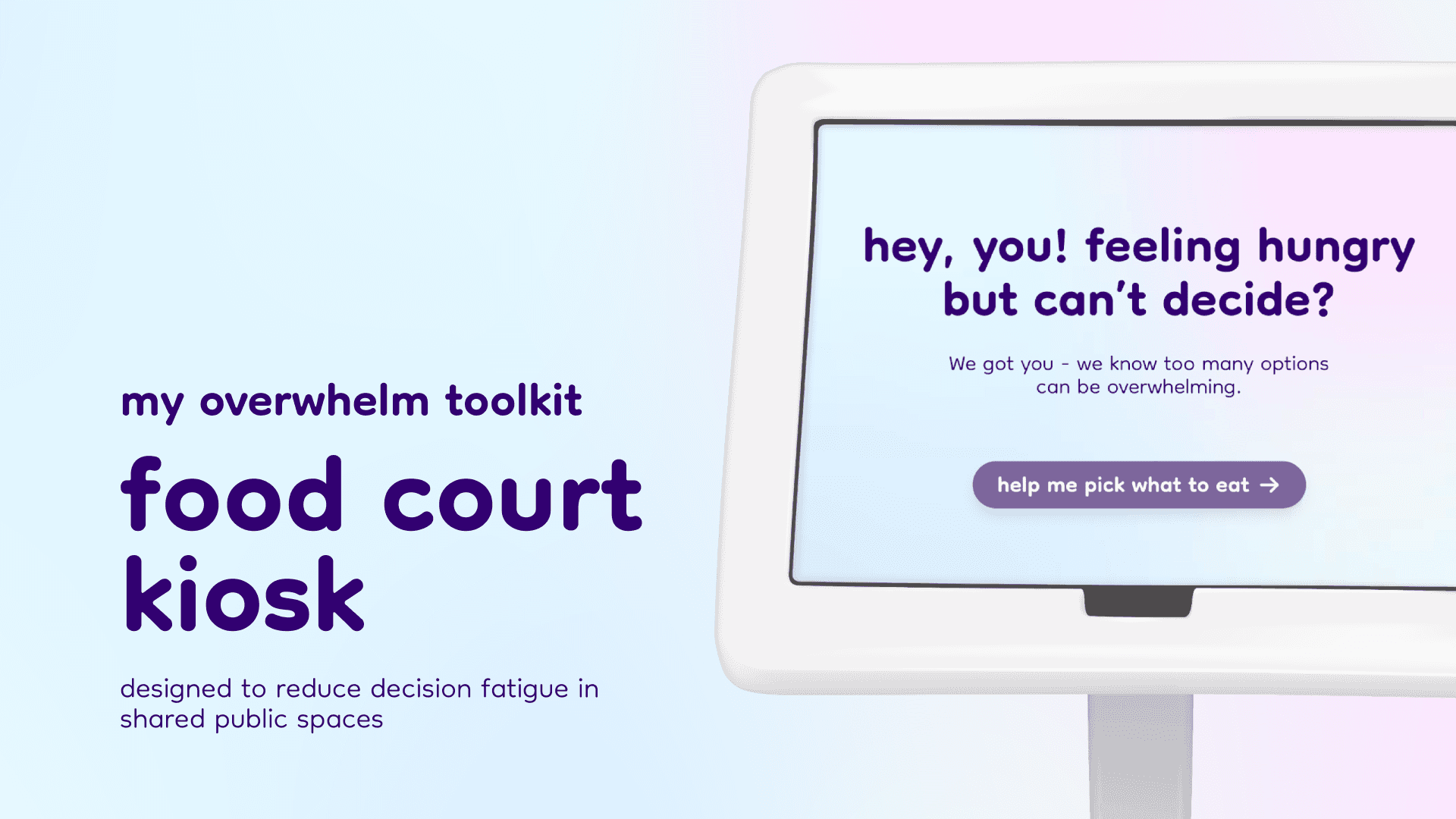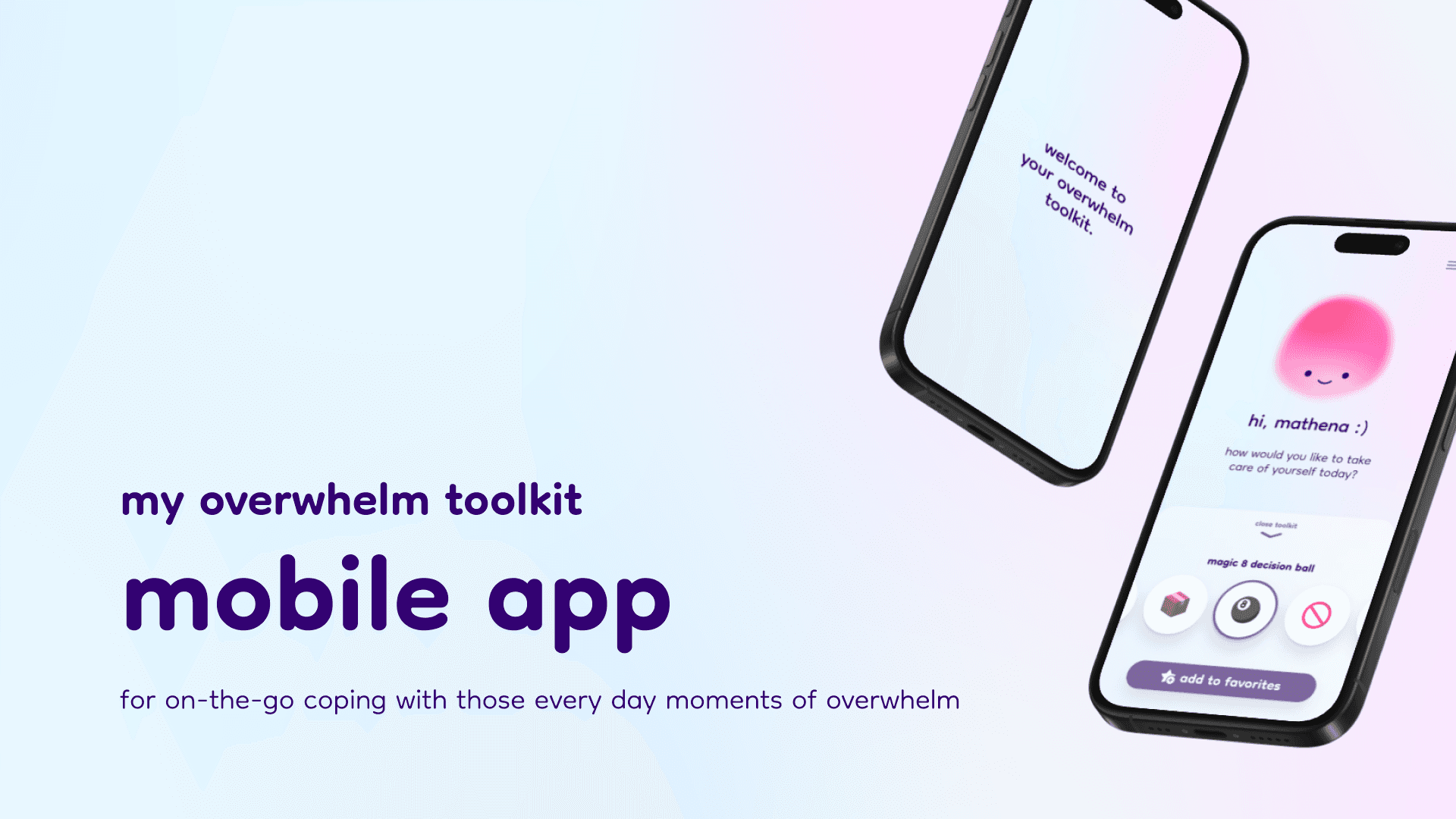#capstone_project
#design_for_mental_health
Guiding college students through moments of overwhelm
background
My chosen focus for this capstone project was the topic of overwhelm. This was a problem I had become interested in investigating after seeing many people around me, myself included, suffer from being frequently overwhelmed.
overwhelm (noun)
the state of being overcome with an intense emotion or emotions, making it difficult to think, act, or cope effectively.
the process
Phase 1: discover (4 weeks)
understanding the problem
phase goal
Understand how overwhelm manifests and how various individuals currently cope.
research methods
Cultural probe study with 12 participants (view study↗)
Competitive/market research
Desk research

A participant’s response to the cultural probe study
Key findings
Common emotions
stress, anxiety, fear, uncertainty, hopelessness, frustration, guilt
problem statement
students and young professionals frequently experience overwhelm from a combination of academic/professional, social, and personal pressures, leaving them unable to effectively cope or regain balance.
Phase 2: define (4 weeks)
synthesising insights
Phase goal
Translate research into actionable insights and design direction.
activities
Experience mapping
Generating "how might we" statement
Identifying key user needs

Experience map
"how might we" statement
"How might we help individuals manage moments of overwhelm in everyday life?"
Key user needs
Accessible in moments of crisis
Offer quick relief and long-term strategies
Encourage self-compassion and joy
Phase 3: develop (4 weeks)
generating solutions
phase goal
Rapidly prototype and test concepts across multiple touchpoints.
methods
Rapid prototyping
Usability testing


Wireframe concept sketches of a mobile app with various mini-games/activities to cope with overwhelm
Phase 4: deliver (2 weeks)
final deliverables
deliverables
1
Student center food court kiosk for mood-based food recommendations.
2
A mobile application for real-time coping strategies.
3
A physical toolkit with tangible mindfulness aids.
1
food court kiosk
Alleviates decision fatigue in a high-pressure, everyday environment by guiding students through an intuitive and playful food selection process. Turns a stressful moment into a supported one, showing how small interventions can reduce mental burden.
Imagined kiosk in context at Northeastern University’s Curry Student Center
demo video
selected screens
2
mobile app - my overwhelm toolkit
Mobile app that provides interactive mini-games and grounding activities tailored to different levels of overwhelm, helping users self-regulate and regain balance in the moment.
key features
Offers a portable, discreet way for users to access emotional support anytime, anywhere
Real-time coping strategies tailored to user triggers
Customizable pet/character mirroring user mood → encourages self-care
Quick-access calm-down features
selected screens
demo video
2
physical toolkit
A portable kit designed to help users manage stress and anxiety through tactile, screen-free coping. Encourages sensory grounding and simplified decision-making with tools like a stress ball and decision coin, making emotional self-care tangible, approachable, and shareable in offline settings.
features
Mini stress ball
2-sided decision coin
Mood vinyl stickers for customisation
Toolkit contents
Toolkit (front)
Toolkit (back)
takeaways











